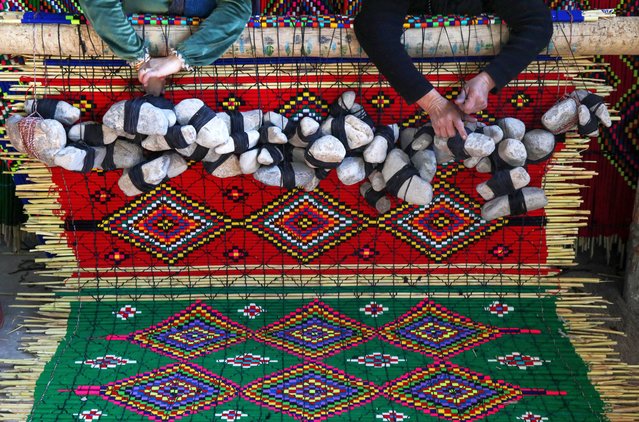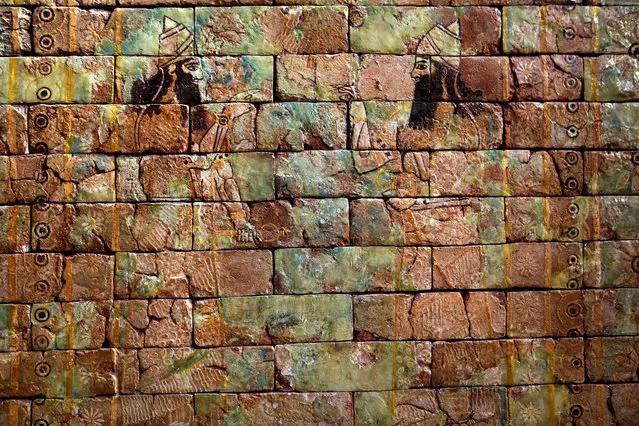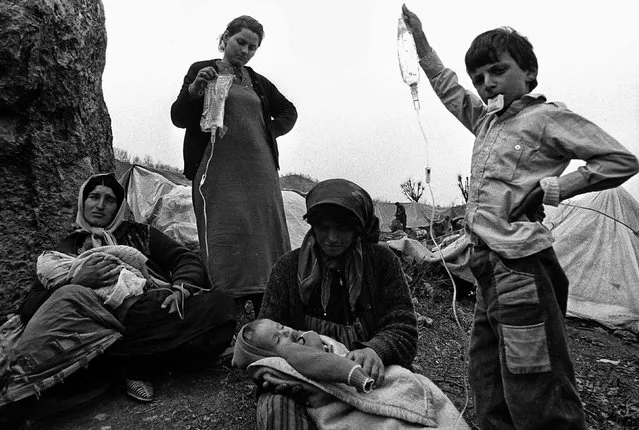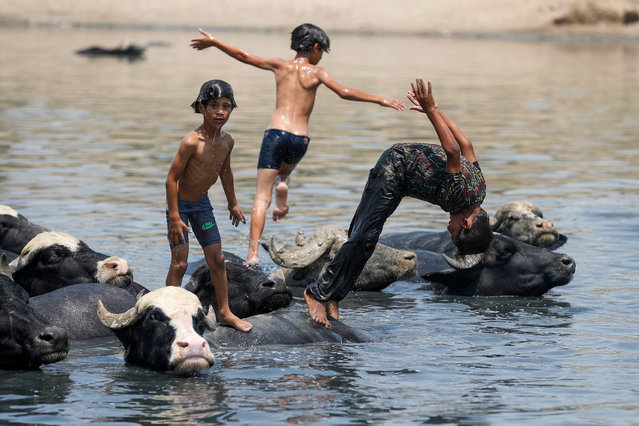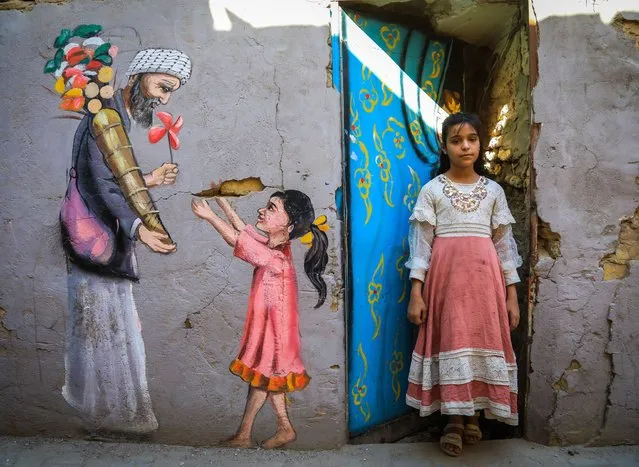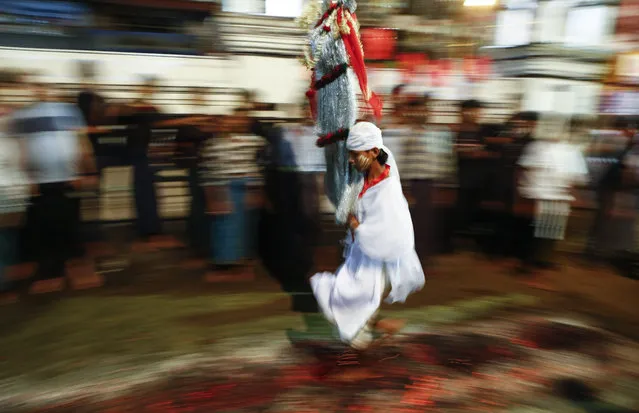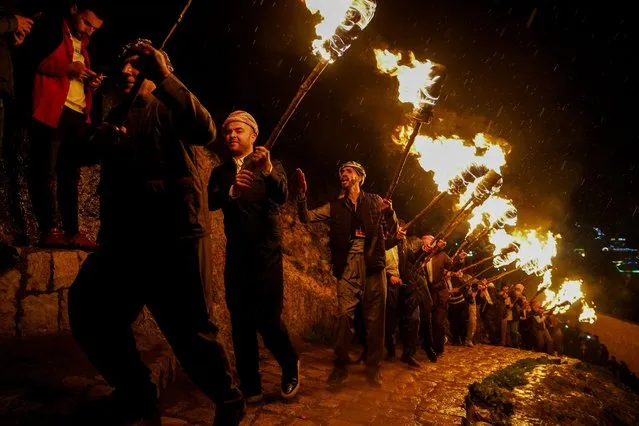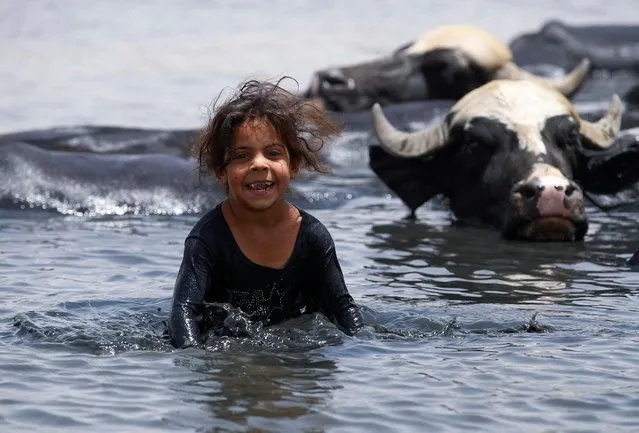
A young Iraqi shepherdess cools down buffaloes in wastewater filling the dried-up Diyala river which was a tributary of the Tigris, in the Al-Fadiliyah district east of Baghdad, on June 26, 2022. (Photo by Ahmad Al-Rubaye/AFP Photo)
10 Apr 2023 03:55:00,post received
0 comments

